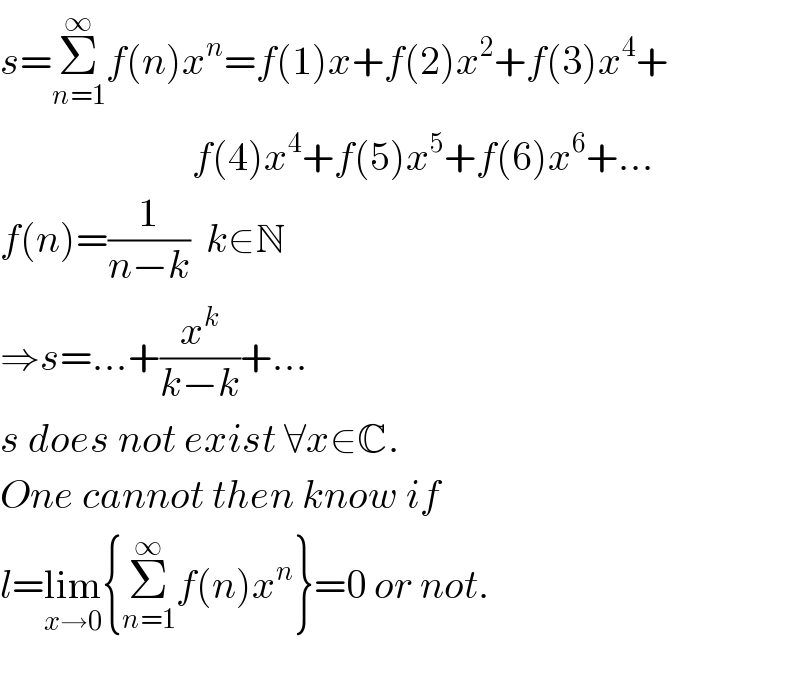
Question and Answers Forum
Question Number 4132 by prakash jain last updated on 29/Dec/15
![Is there f(n) such that lim_(x→0) [Σ_(n=1) ^∞ f(n)x^n ]≠0 f(n) is independent of x.](Q4132.png)
Commented by Yozzii last updated on 29/Dec/15

| ||
Question and Answers Forum | ||
Question Number 4132 by prakash jain last updated on 29/Dec/15 | ||
![Is there f(n) such that lim_(x→0) [Σ_(n=1) ^∞ f(n)x^n ]≠0 f(n) is independent of x.](Q4132.png) | ||
Commented by Yozzii last updated on 29/Dec/15 | ||
 | ||